Japanese doctor's supplement

We deliver products that you can continue to use with peace of mind.
For three decades, our distinguished director, Dr. Makise, has traversed over 85 countries, passionately studying natural substances to bolster health. This journey culminated in the establishment of a clinic in Osaka, Japan. Here, Dr. Makise integrates his unique supplements with his extensive expertise, effectively treating numerous patients contending with intricate health challenges, both domestically and globally. From the forefront of medical innovation, we present products of unparalleled reliability, endorsed by countless users. We are dedicated to consistently delivering supplements that form a dependable cornerstone of your health regimen, safeguarding your well-being today and tomorrow.
Rich Polyphenols of Shell Ginger(Alpinia zerumbet)
- What are Polyphenols?
Polyphenols are a category of naturally occurring compounds found abundantly in plants.
They are a part of the plant’s defense mechanism against disease and also contribute to the color, flavor, and texture of the plant.
Polyphenols are known for their antioxidant properties, which means they can neutralize harmful free radicals in the body.
- Benefits of Polyphenols
- Antioxidant Effects: Polyphenols can reduce oxidative stress in the body by neutralizing free radicals,which are compounds that can cause cell damage and contribute to various diseases.
- Heart Health: Consumption of polyphenols has been linked to a reduced risk of heart disease,as they can improve blood vessel function and lower blood pressure.
- Gut Health: Polyphenols can influence gut bacteria in a positive way, promoting a healthy gut microbiome.
- Potential Cancer Prevention: Some studies suggest that polyphenols may play a role in reducing the risk of various cancers, due to their antioxidant and anti-inflammatory properties.
- Blood Sugar Regulation: Certain polyphenols have been found to help in controlling blood sugar levels,which is beneficial for individuals with diabetes or at risk of diabetes.
- Types of polyphenols contained in Shell Ginger (Alpinia zerumbet )
- Chlorogenic acid – A Natural Antioxidant
Chlorogenic acid is known for its powerful antioxidant properties. It supports weight management by regulating metabolism and reducing carbohydrate absorption. Additionally, it contributes to heart health by maintaining healthy blood pressure levels and improving vascular function. - Ferulic acid – A powerful ally in preventing aging
Ferulic acid, celebrated for its robust antioxidant capabilities, plays a crucial role in anti-aging, cholesterol management, and cancer prevention. Significantly beneficial for skin health, it is a favored ingredient in skincare products. It also counteracts beta-amyloid peptide’s toxic effects, linked to Alzheimer’s disease memory impairment. - Epicatechin – Enhancing Health and Performance
Epicatechin is celebrated for its ability to enhance muscle growth and strength. This potent antioxidant also supports heart health by improving blood flow and reducing oxidative stress. It’s a key ingredient for those looking to boost physical performance and cardiovascular health. - Catechin – The Heart of Green Tea’s Goodness
Catechin, a natural phenol found abundantly in green tea, stands out for its antioxidant properties. It’s known for supporting cardiovascular health, aiding in weight management, and offering potential protective effects against certain types of cancer. - Kaempferol – Nature’s Protector
Kaempferol is known for its powerful antioxidant properties. It supports cardiovascular health, has anti-inflammatory effects, and may reduce cancer risk. Ideal for overall wellness and longevity. - Ellagic acid – Potent Cellular Guardian
Ellagic acid is celebrated for its anti-cancer and anti-inflammatory properties. It promotes skin health, supports cardiovascular function, and aids in DNA repair, making it a vital component for maintaining cellular health and longevity.
What are Urolithins Metabolized by Ellagic Acid?
Urolithins are groundbreaking compounds derived from the digestion of ellagitannins, found in foods like pomegranates, berries, and nuts.
These miraculous molecules have caught the attention of the scientific community for their potent anti-aging properties. They have sparked excitement for their remarkable ability to rejuvenate our cells, making us feel and look younger. These powerful molecules help our bodies to clean out damaged cells, thereby improving our skin’s radiance, boosting muscle strength, and enhancing brain function. With urolithins, we tap into nature’s secret for maintaining vitality and delaying the signs of aging, embodying a holistic approach to health and wellness.
Enhancing the Power of Shell Ginger with an Additional 100mg of Ferulic Acid for Guaranteed Efficacy Within the Body

Ferulic acid is gaining attention for its potential in protecting against Alzheimer’s disease. Research suggests that its antioxidant properties may help mitigate the damage caused by beta-amyloid peptides, the proteins implicated in the development of Alzheimer’s. By possibly inhibiting these peptides’ toxic effects, ferulic acid could play a pivotal role in preserving cognitive function and delaying the progression of this debilitating disease.
The comprehensive benefits of ferulic acid underscore its significance in promoting internal wellness and safeguarding against age-related decline. As we explore its full potential, ferulic acid emerges as a key ally in the pursuit of a healthier, more vibrant life, demonstrating the power of natural compounds in enhancing our well-being from the inside out.
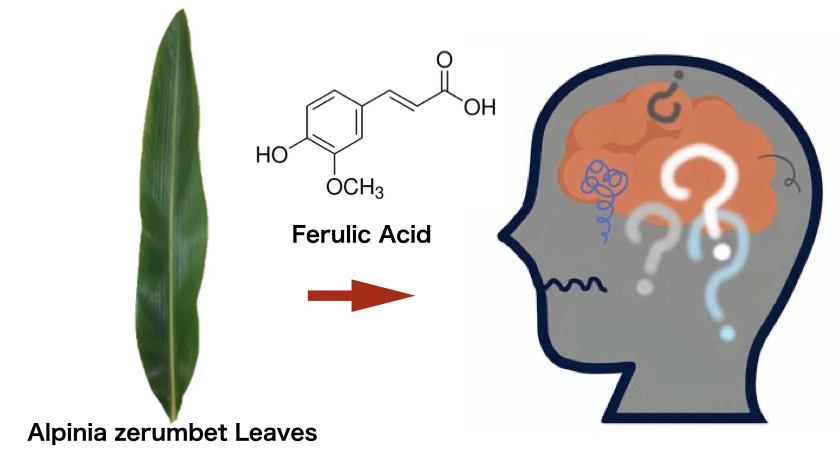
How Shell Ginger's Polyphenols Enhance Gut Health and Urolithin Production
This interplay of Shell Ginger’s polyphenols demonstrates a remarkable synergy within our bodies.
Ellagic acid is converted into Urolithin. However, without a healthy Intestine flora, Urolithin cannot be metabolized.
Quercetin, a powerful polyphenol abundant in Shell Ginger, is known for its research-backed ability to restore and strengthen the health of your intestine microbiome. By modulating the gut flora with quercetin, it supports the metabolic conversion of ellagic acid to beneficial urolithins, demonstrating a sophisticated natural mechanism that promotes health from within. This process is crucial in nurturing our internal ecosystem to enhance health.
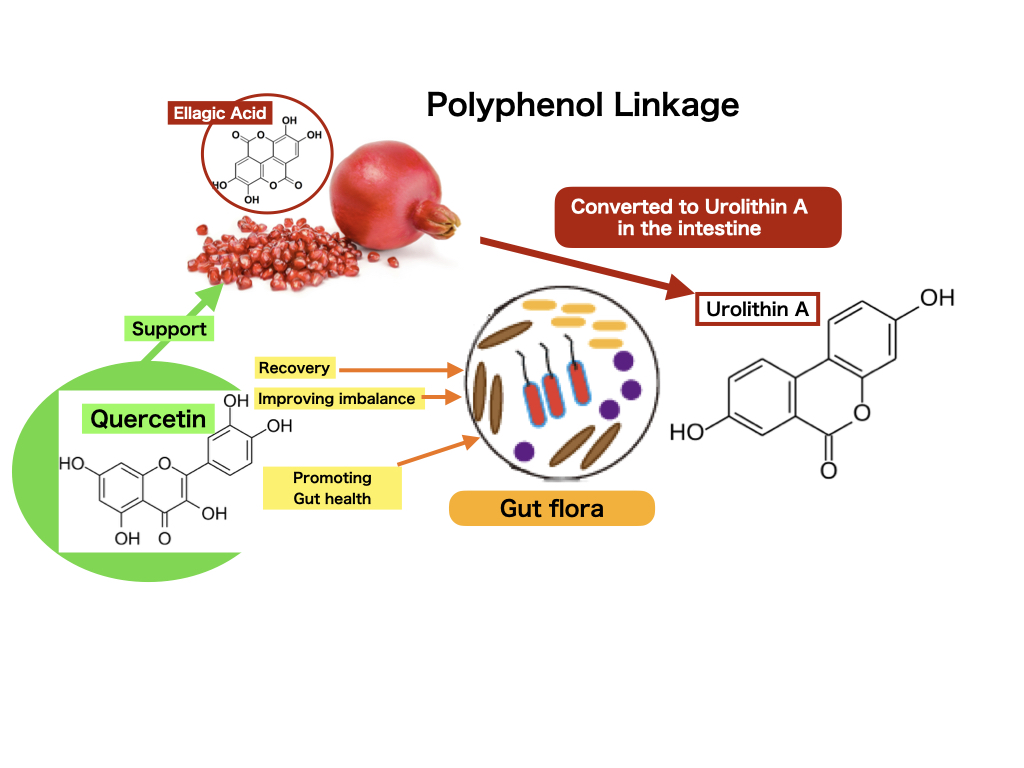
Why JIPANG Ginger OPTIMAL?
Experience the profound wellness benefits offered by the diverse polyphenols in Shell Ginger, further amplified by the inclusion of Ellagic Acid (Pomegranate Extract Powder) and Ferulic Acid. This meticulously crafted blend supports your body’s natural defense systems, offering a comprehensive approach to health that spans Alzheimer’s prevention, cholesterol management, and cancer prevention. Our carefully selected ingredients work in harmony to provide a foundation of well-being, imparting a radiance that emanates from within.
The newly formulated JIPANG Ginger OPTIMAL designed to synergize perfectly with JIPANG Ginger WASABI, JIPANG Ginger HIBAMATA, and JIPANG Ginger PROTEOGLYCAN. This advanced blend is crafted to enhance your health and youthfulness more powerfully when combined with any of these supplements. Embrace a stronger support for your wellness journey with the strategic pairing of JIPANG Ginger OPTIMAL and its counterparts.

Supplement Fact
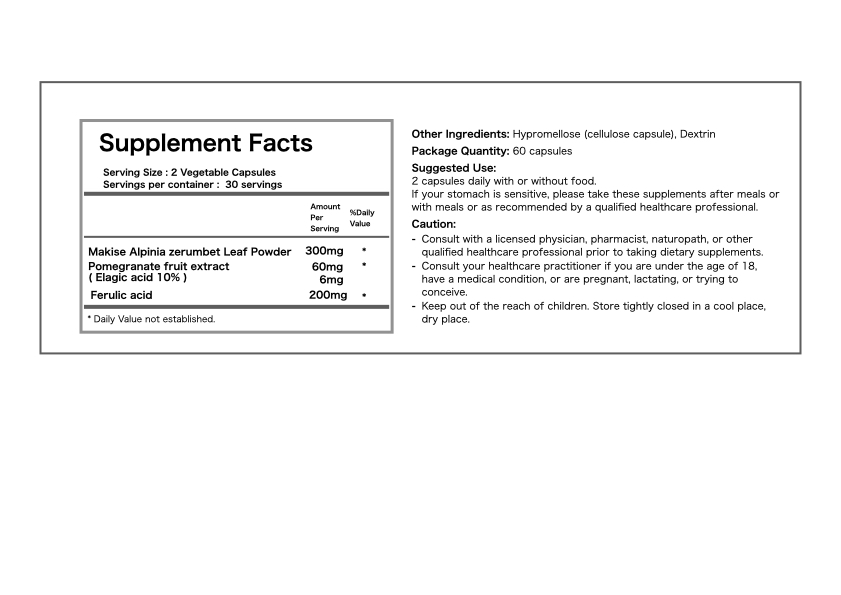
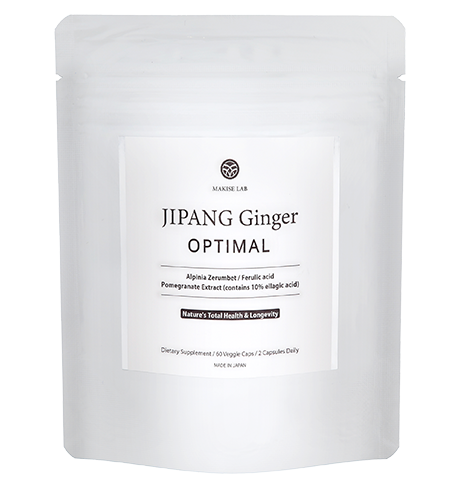
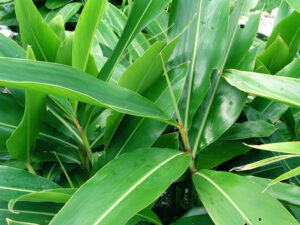
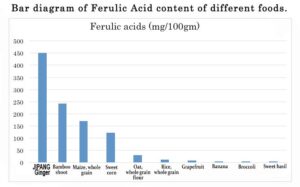
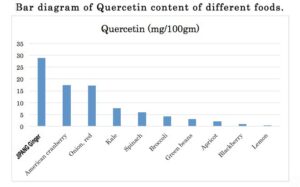
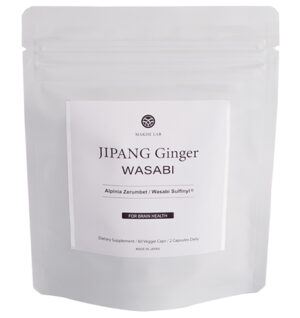
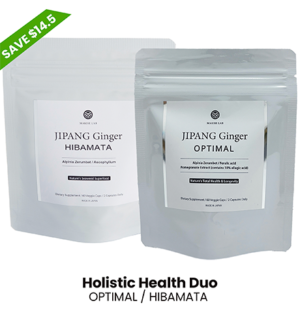
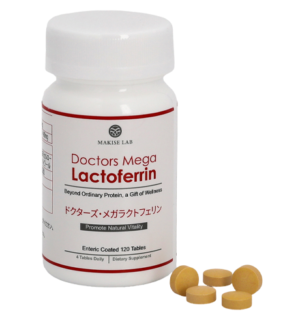
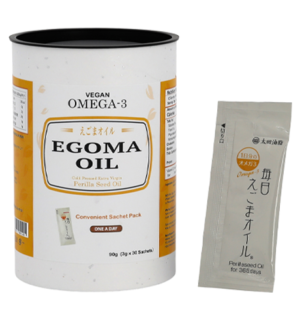
Angela (verified owner) –
I bought this on impulse because I was worried about dementia due to my severe forgetfulness, but to be honest, I have to continue taking this product and I was skeptical because I didn’t know if it was working or not, but after about a week of taking it, my bowel movements suddenly improved. It seems like my chronic constipation was a lie. I haven’t done anything different except for this supplement, so is this the effect? I’m surprised by the unexpected effect, I’ll continue taking it for a while.